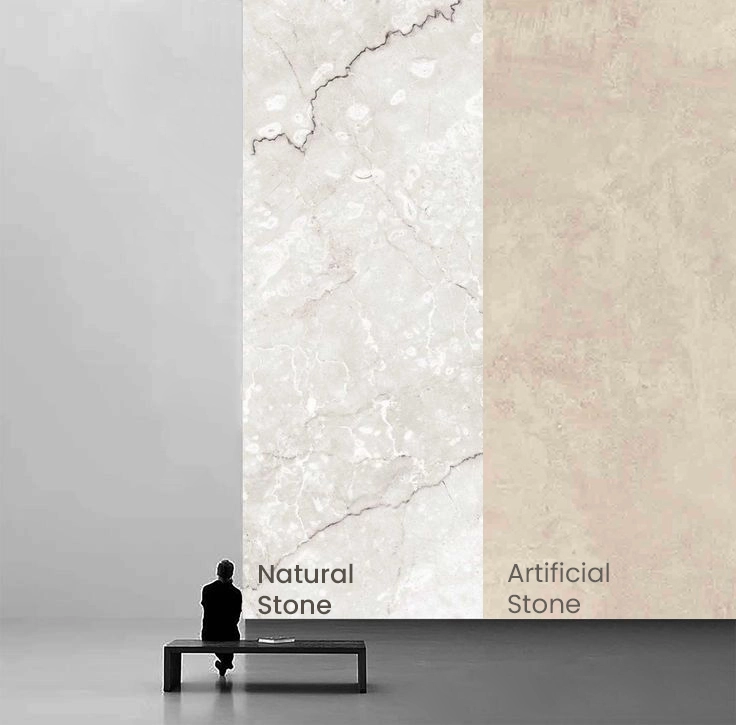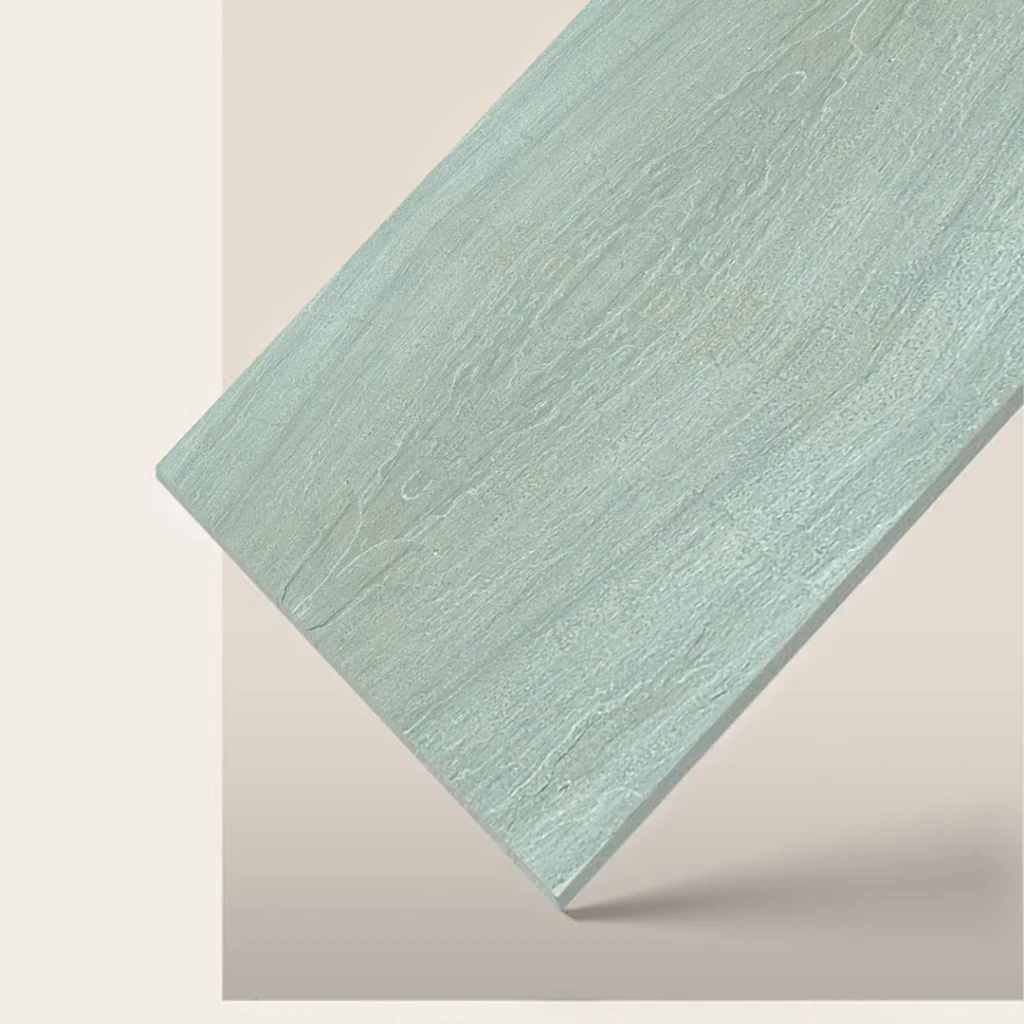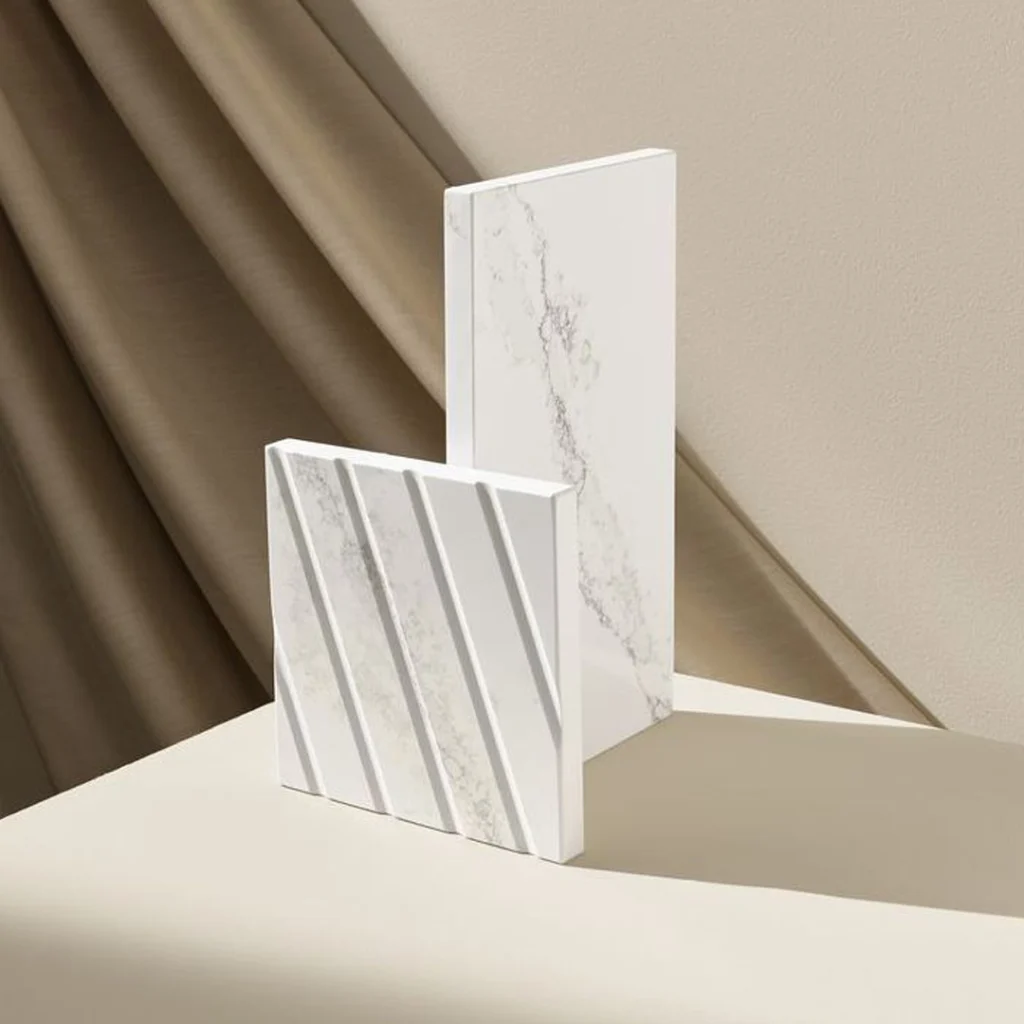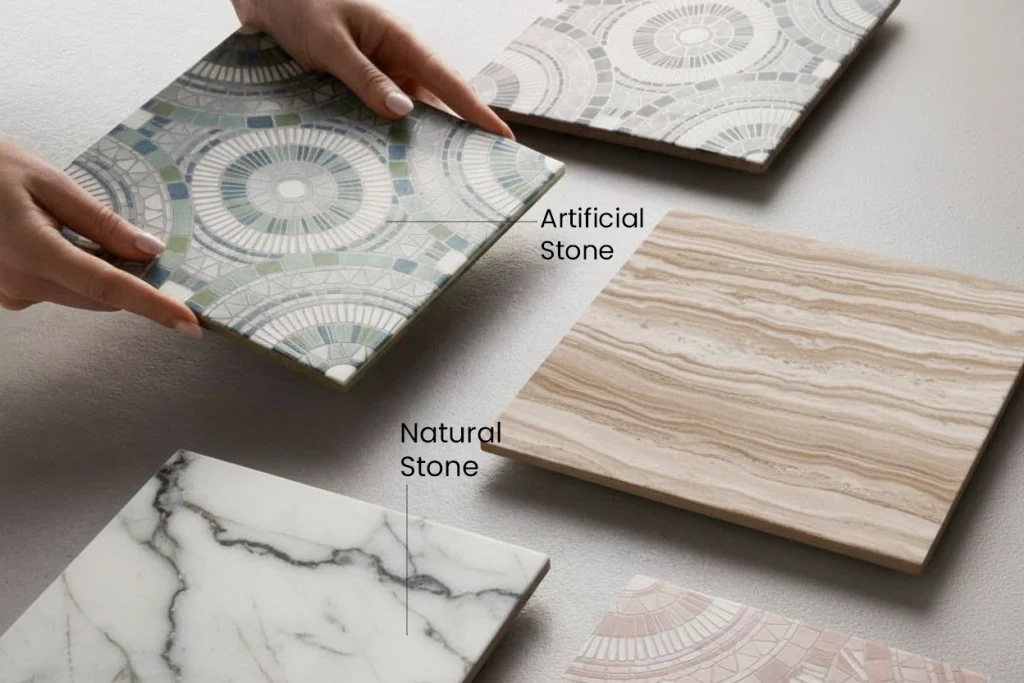
Whether you are a construction contractor, a landscaper, or an interior designer, you can’t deny the fact that today there is a wide range of material choices available in the industry. And sometimes, it becomes confusing for you to decide on the best. For example, if you are confused between choosing a natural or artificial stone, this post is meant for you.
Be it a large-scale construction project or a low-key one, the selection of the right construction stone makes a big difference to the overall value of the project.In the market, there are primarily two types of construction stones – natural stone and engineered stone. Though both of them have their pros, it is a good idea to compare them before arriving at a final decision.
Natural Stone

As the name indicates, natural stone is a product of nature that is formed beneath the earth’s surface over millions of years. It is then extracted from the Earth at various places all across the world. Their exact mining location is important when it comes to determining the stone slab’s category, texture, color, quality, and value. Some of the popular natural stones are granite, marble, quartzite, limestone, sandstone, and slate.
The most distinctive thing about natural stones is that no two pieces would be identical. For example, a granite slab would be of a somewhat different surface pattern than another slab. But these irregularities and natural defects make natural stone popular among construction professionals.
Artificial or Engineered Stone

It is a man-made material that was brought to use in the 80s. It is its high level of consistency in terms of color and texture that makes it different from natural stones.These stones are made up of composite material which is prepared by crushing stone (preferably marble or quartz) and combine them using an adhesive, usually polymer resin. At present, artificial stone looks identical to natural stones and lends a number of benefits to the users. Some of the commonly used engineered stones are Silestone, quartz, Caesarstone, cambria, icestone, and others.
Comparison of Natural and Artificial Stone against different parameters
Now, let’s compare both of them against various parameters.

1. Looks
While natural stones tend to highlight natural colors and patterns that emerge due to natural processes, artificial stones reveal an even color and regular patterns due to the advancements in technology.
But in terms of authenticity, there is no point in comparing a man-made product with a natural product. Natural stone is made over thousands of years and in that process, its looks keep changing with time and environment. In other terms, each natural stone slab differs in its looks – no two slabs look similar. Go to any natural stone market in the world and you will come across dynamic variations in color, quality, veining, and flecks that lend a distinctive appearance to each stone.On the other hand, artificial stones reveal consistency and repetition in terms of color, texture, and style. As they are made using mechanized techniques, they all look the same. You can also find a hand-painted finish in artificial cladding which is often performed to give an exclusive look. Hence, folks who like natural appearance may have issues with the peculiar and impractical design of artificial stones.
2. Cost
It is generally believed that artificial stones cost less than natural stones. This is due to the reason that artificial stones are 20-30% lighter than artificial stones and their similar design pattern and texture make it easier for professionals to install.Apart from this, the exact specification of the project determines the actual cost of the stone to be purchased. For example, the orientation of the kitchen may be of value in determining the actual waste and cost.
3. Longevity
Longevity is one of the major factors that decide which type will perform longer. Natural stone is always a step ahead in terms of durability and upkeep. For example, you can look for various ancient sculptures made of natural stone that are still standing impressively, even after centuries.
A majority of natural stones are less porous in nature which results in increased durability. Nonetheless, the upkeep of natural stone can be performed easily using a pressure wash. However, maintenance of artificial stone is labor-concerted as it will not be able to bear the pressure of washing or manual scrubbing.
4. Versatility
This is one area where artificial stones may have an edge as they can be installed on diverse substrates that don’t follow a structure like masonry or wooden frame.
However, in search of a good stone for cladding purposes, it is not good to use an artificial stone. Artificial stone may also not be a feasible choice for application near swimming pools. It could affect the structural integrity of the substrate it is installed on.
According to construction experts, the use of artificial stones for flooring or kitchen countertops may not give that rich look like a granite stone. One benefit of artificial stones is that they don’t require sealing like natural stones. However, they are found to get discolored permanently when exposed to certain chemicals. However, there are various varieties of granite, particularly dark-colored ones that do not need sealing. So, it is all up to you which material you actually choose for your project.
In a standard size room, the installation of artificial stone would take just 1 – 1.5 days as they come in ready to install conditions whereas, in the case of natural stones, it would take a much longer time due to the manual processing and cutting of each slab.
No matter which stone you choose, both have their pros and cons. Thus, there are lots of factors that determine which stone one should go with like installation area, local climate, design orientation, allotted budget, and the purpose.
If you love sticking to nature, natural stones like granite or marble are surely a winning choice. However, in order to end up getting the best, you need a reputed and reliable natural stone supplier or exporter in India who has been providing quality products for several years. Always keep in mind that natural stone is a product that may be full of natural defects but this is what makes it so demanding despite the high price. On the other hand, getting artificial stone is very easy due to the involvement of mechanized processes.
To make the best choice, it is recommended to do thorough research on all the available options and decide on a stone product that matches best to your project needs and budget.
